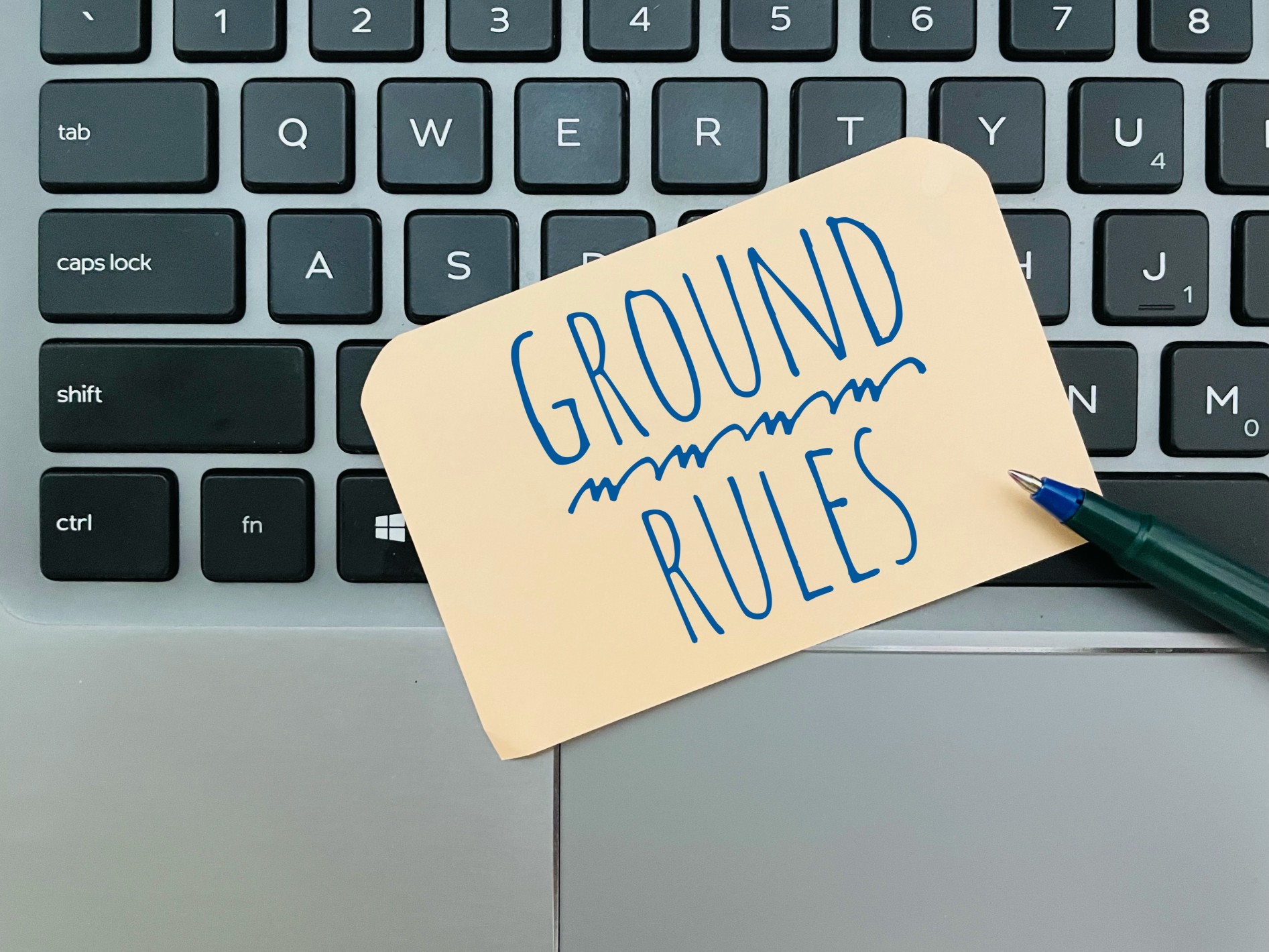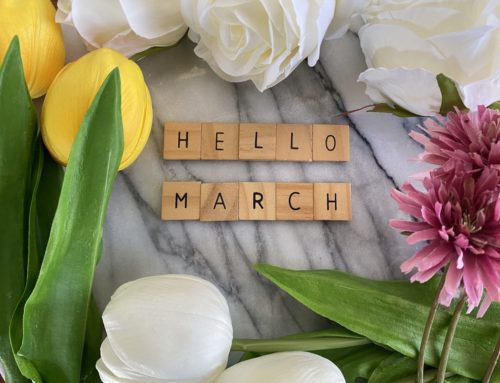
As I’ve shared, we are leaving Facebook Groups in favor of a private-label community integrated into our website and running on Circle. As we envisioned this new place, we also needed to think about the community guidelines.
Here is the process I went through to develop the guidelines, which you will find below.
- Get all of your random thoughts down. We started a Google doc where we did a brain dump of all the ideas we had about what this community should and shouldn’t be. This was largely based on what we liked and didn’t like in the various groups we’ve been participating in.
- Focus on what you want first, rather than the “don’ts.” So many community guidelines are essentially policing behavior and letting everyone know the consequences of bad behavior. While I agree you need to put that stuff in writing as the justification when you decide to delete content or remove someone, I feel strongly that this negative content shouldn’t be what you say first. Focus on what you want to happen in the community first.
- Read the community guidelines of at least 10 other organizations/groups. Be a sponge here and read as many sets of guidelines as you can. Where do you find them? I first went to the communities that I enjoy being a part of myself, regardless of the topic. Then I went to the guidelines of communities that were related to ours in some way, which included groups for nonprofits and marketers. Then I googled “best community guidelines” and found lots more. I highlighted everything I liked.
- Start organizing the material. Next, I went back to my original doc and started to organize all of those ideas using the additional frameworks I had in my head from reading all of the examples.
- Add in the new ideas you liked with your own spin. I then filled in the gaps using materials I had highlighted in the samples, putting my own spin on the language so that the whole document felt cohesive.
- If the community guidelines end up being long (like ours), you have to do a shorter summary. I went through each major section, boiled that down to a couple of sentences and created the summary, followed by the details.
- Put it out there and adjust as needed over time. This is where we are now. We’ll add and edit as we learn more about what’s working and what’s not.
Here’s a lightly edited version (internal links and platform-specific formatting removed) of what we came up with . . .
Welcome! Let’s Make This a Great Place for Nonprofit Communicators (This is the summary)
First and foremost, welcome! Take a deep breath and relax. You are among friends who know and understand what you do for a living. We get it.
We hope you’ll think of this community as your professional development homebase and a place you can retreat to on good days and bad. Kick off your shoes, grab a favorite beverage, and sink into a comfy chair for good conversations with friends and colleagues, old and new.
Here are the most important things to know:
- We welcome everyone, but you must be a real person, not an organization or avatar.
- We will not tolerate demeaning behavior, solicitations, fundraising, etc. here.
- Let generosity, gratitude, empathy, and humility guide you here.
- We want to help you learn, but we also want to support you in caring for yourself at work and in making friends who get what you do for a living.
- Everyone, no matter how long they’ve been at this work, has something to learn.
- We want you to feel comfortable here, but some of the things we talk about may make you feel decidedly uncomfortable. That’s part of learning and growing.
- We expect more from consultants, freelancers, and solution providers — if that’s you, you definitely need to read the relevant section below.\
- You’ll find tips on how to get the most out of this community as well as the rules we use to moderate these spaces. By participating, you are agreeing to abide by these rules.
And the big disclaimer: Nonprofit Marketing Guide as a private company reserves the right to change these rules at any time, to edit or remove content, and to limit functionality for or to remove people entirely from the community on a case-by-case basis.
Let’s Make This Place Different
This is a place . . .
- to learn and to get advice
- to find belonging and camaraderie
- to vent, relax, and laugh with others who get it
- to find shelter and comfort in the storm that is modern nonprofit marketing
This is a community of nonprofit communications and marketing professionals who may or may not also be responsible for fundraising, operations, programs, or executive management. Your presence here tells us you are serious about your personal and professional growth.
Therefore, our expectations are more sophisticated than you would find in a typical Facebook Group, for example.
Let generosity, gratitude, empathy, and humility guide you here.
We welcome everyone of any race or ethnicity, gender identity or expression, sexual orientation, age or generation, disability, religion, political persuasion, organizational size or mission, country of origin or residence, immigration status, language skills, neurodiversity, and chronic mental and/or physical illness. Y’all means all.
We stand against all forms of dehumanizing or unlawful treatment of others, including but not limited to all forms of cyberbullying and harassment, hate speech, white supremacy, or threats based on any of the identifiers listed above.
We encourage you to include your pronouns, nicknames, and other preferences in your profile to help others better understand how you want to be seen here. When people get it wrong (including your admins, Kivi and Kristina), we encourage and welcome gentle but firm corrections.
We will not demean or attack anyone personally, even when they are on our last nerve.
Much of the frustration you will feel in your work comes from the quality of your relationships with others in your nonprofit, including supervisors and coworkers in other departments. While we will often characterize these people through personas such as “a visionary executive director” or “the wonky program lead,” these personas are a form of professional shorthand to describe a situation you are in with someone, not the whole of who that person is.
While we may make fun of these situations as a way to vent, please don’t make it personal. Don’t let these personas devolve into stereotypes that strip others of their complicated humanity.
Remember, as marketing and communications professionals, we too can be characterized by a number of personas! We can also make fun of ourselves when we fall into some of those annoying patterns too. But none of us wants to be known exclusively by those stereotypes either.
All of that said, Daily Vibes (for Pass Holders and Brain Trust members) is the perfect place to vent about how things are going, ideally with a good gif or meme, with no expectation of or request for advice. If you do want advice, post in one of the other topical spaces instead.
Oh, and a word about swearing. We aren’t banning it, because frankly, we swear a lot. But do please be judicious and when an abbreviation or substitute will work just as well, opt for that. But if you really need to let it fly, we probably won’t censor you.
What We Hope and Expect You Will Do Here
- Ask and answer questions.
- Talk about your work in progress.
- Ask for and give feedback.
- Make some solid work friends.
Everyone, no matter how long they’ve been at this work, has something to learn. Everyone here is learning something on the job right now. Many of us have big gaps in our experience and knowledge simply because we haven’t been asked to do that thing yet.
So don’t censor your own questions and be generous when others ask what seem like simple questions to you. You never know who may have the answer you need one day. That said, do your basic homework before tapping into this network so that you ask better questions from the get-go.
We Are Here to Help But Do Your Own Basic Homework First
A simple Google search will answer many basic factual questions, especially about the software you may be using.
We also have a ton of content on our blog, so you can search there too.
Respect each other’s time here. Don’t ask people to do your homework or your job for you. We are not fans of super broad questions like, “How do I do fundraising?” or “Hey everyone! Can you share your marketing plan with me?” Instead, do your basic homework first with Google, then come in here with specific questions.
Please also search within the community before posting. It will take some time to build up the knowledge base in the community. But because everyone works in nonprofit communications, we expect you’ll find others have similar questions and the answer you seek may already be here in another thread.
Post in the most logical Space. We’ve set up this community with more than a dozen specific topical Spaces to help keep the conversations organized. Please take a quick look at your choices in the left sidebar, then select the most appropriate Space. When in doubt, you can always use “Other Tactical Topics” and “Other CALM Mgmt.” Admins may move conversations around later.
Protect Each Other and Keep It Confidential
We insist that you use your real name as a condition of participation so that you can build genuine relationships with colleagues. You may not participate as an organization.
As part of the “retreat” vibe we are seeking, it’s OK if you are less guarded, articulate, or polished than you might try to be elsewhere online. We expect everyone here to honor that authenticity with grace and to protect it for each other. Therefore, what happens here, stays here.
Do not copy/paste, screenshot, or otherwise share or repost content outside of this community.
If you want to relate a helpful conversation to others in your nonprofit, please don’t name names or organizations without first getting permission from the individual to do so. Let them decide whether they can be named or if they prefer to stay anonymous.
Working Through Challenging Conversations and Feedback
We want you to feel comfortable here, but some of the things we talk about may make you feel decidedly uncomfortable. Even when you disagree, we expect you to be generally supportive of each other as evolving human beings living in challenging times and doing this work, often with suboptimal support.
It’s OK to debate ideas and approaches. It’s OK to ask challenging questions, especially those that help people see beyond their own life experiences and what they perceive as limitations on what’s possible. In fact, it’s more than OK — we hope you’ll feel comfortable enough to do exactly that here.
However, to do this effectively, you cannot assume you know all the details of a person’s experience. You have to keep listening, even after — especially after — you’ve started talking. Also, we are not fans of playing the devil’s advocate or throwing out false equivalencies. It’s intellectually lazy and unhelpful (unless someone specifically asks you to play that role to game out a crisis comms scenario, for example).
Sometimes conversations get heated. Sometimes feelings get hurt. You may feel misunderstood. In these cases, we expect the conversation to continue with respect and civility. We are not fans of the snarky hit-and-run comments so endemic to social media. If you are going to engage, stay in it and see it through, even if that means you step away for a bit and come back to it later.
You may be coached or corrected. Listen to the coaching and be curious and contemplative about it. Resist the natural urge to get defensive — that rarely goes well. Remember, we are all learning, all the time. Embrace this learning and growth mindset, especially when you are being challenged or disagree strongly with something or someone. Remember, generosity, gratitude, empathy, and humility.
If you feel like a conversation has crossed over into a place that no longer reflects the values described here, or if something makes you question whether you belong here, please tag in or private message Kivi Leroux Miller or Kristina Leroux or a space moderator.
A Special Note for Consultants, Freelancers, and Solution Providers
This community is built for nonprofit staff. If you were invited here because you purchased training from us, you are welcome here too!
But please know that we do hold you to a higher standard for participation, in addition to everything stated above.
You may not simply lurk and soak up business intelligence. This community and its participants are not your research subjects, nor your marketing goldmine. We expect you to be helpful and encouraging to others often. If you are inactive, we may remove you.
You may not do research here (e.g. ask people to take your survey or contribute quotes or stories for your content) or promote your products, services, training, blog posts, etc.
The exception is if sharing your link genuinely answers a question or provides a requested resource. Don’t just drop the link, however. Explain what will be found at the link. If registration is required to get the gated content or a fee is required, please say so.
We do plan to highlight consultants and other service providers in a variety of ways, and as you see that happening, you are welcome to reach out to Kivi Leroux Miller or Kristina Leroux to suggest ways that you could participate in a similar activity in the future. Do not take it upon yourself to create these opportunities or community offers without talking to us first.
Obviously, the rules in this section do not apply to Nonprofit Marketing Guide and its business partners, because we own the place and pay all the bills.
What’s NOT Allowed (Don’t Make Us Kick You Out)
We hope you get by now what we are trying to do here. But for absolute clarity, we’ll put a few things in writing.
No solicitations. Do not ask for donations, money, business, free consulting services, or for someone to do your job for you.
No harassment, bullying, gaslighting, and the like. We have a zero-tolerance policy and will not hesitate to remove you and your content.
No fake or duplicate profiles. One profile per person and it best be the real you. If you have any questions or problems with your account (especially when changing jobs or email addresses) please email Kristina at helpdesk@nonprofitmarketingguide.com with the specifics so she can help sort them out. Your account is linked in three very different pieces of software — Keap (our CRM), Thinkific (our learning management system), and Circle (this community platform). Sometimes wires get crossed. Help us help you uncross them.
If you see any bad behavior, please message Kivi Leroux Miller or Kristina Leroux or the space moderators or tag us in, so we can check it out.
We may delete content without further explanation or notice.
If you persist in what we consider bad behavior, you will be removed from certain spaces or from the community as a whole.






